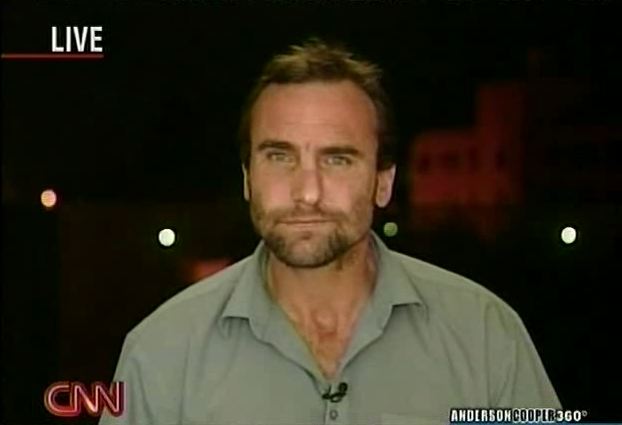AC: What's the price of the policy?

Click photo to play
Length: 3:07
JOHN ROBERTS: Also in Baghdad, CNN's Michael Ware, who has been face to face with an awful lot of heartache, too, over the last three years.
Michael, more troops were brought into Baghdad. They're still not stopping the violence out in Anbar Province and Ramadi, where you were embedded with U.S. forces. There's not enough troops to quell the insurgency. What's going on there?
MICHAEL WARE, CNN CORRESPONDENT: Well, John, I mean, all of these things are bringing to head a point that has been very, very clear here on the ground for quite some time.
I mean, it's what a lot of American officers will say in their private moments. There simply are not enough troops in Iraq to do the job. I mean, we saw the American Marine general who controls al-Anbar Province admit that he does not have enough troops right now, American or Iraqi, to defeat the al-Qaeda-led insurgency in that province.
We have seen this massive operation under way in Baghdad, the Battle of Baghdad, Operation Together Forward. It's now striking into new regions, touching on the power base of anti-American rebel cleric Muqtada la-Sadr. Yet, in the last three days, we have still seen over 100 bodies of the executed and tortured show up in the capital streets.
So, it really brings into question the whole strategy. The strategy has been "economy of force," just enough American troops to hold the line, while they build up the Iraqi security forces. What now comes into question is, what's the price of that policy? How long will it take to develop these Iraqi security forces? How many will die in the meantime, American and Iraqi? How close will this country come to civil war? And how much stronger will al-Qaeda get in that time? -- John.
ROBERTS: It's an interesting juxtaposition, Michael, that President Bush says, this is the central front in the war on terror; it is so important to win this battle; and, yet, as you said, there don't appear to be enough troops to do it.
How important is this capture of the top aide to al-Masri, the al Qaeda leader there in Iraq, in terms of how it might affect the violence in Baghdad, because he was a big operative in the Baghdad area, wasn't he?
WARE: Well, that's according to U.S. military intelligence.
I mean, this is one of the things about al-Qaeda in Iraq. They are a very, very shadowy organization. Their operational security, or their secrecy, is very strong. It's hard to penetrate them publicly. It's very hard to know exactly who's who.
Now, this organization, this al Qaeda organization, when it's had big losses, it's quite often come out and admitted that. So, we have not heard the response from them yet. We don't know exactly who this man is.
One thing we do know, John, this al-Qaeda organization is one that is built for loss. We saw, with the death of its leader, Abu Musab al-Zarqawi, they barely skipped a beat. This is a structure that is ready to replace as soon as it loses people -- John.
ROBERTS: All right. It's making the battle very, very difficult.
Michael Ware, in Baghdad, thanks very much.
